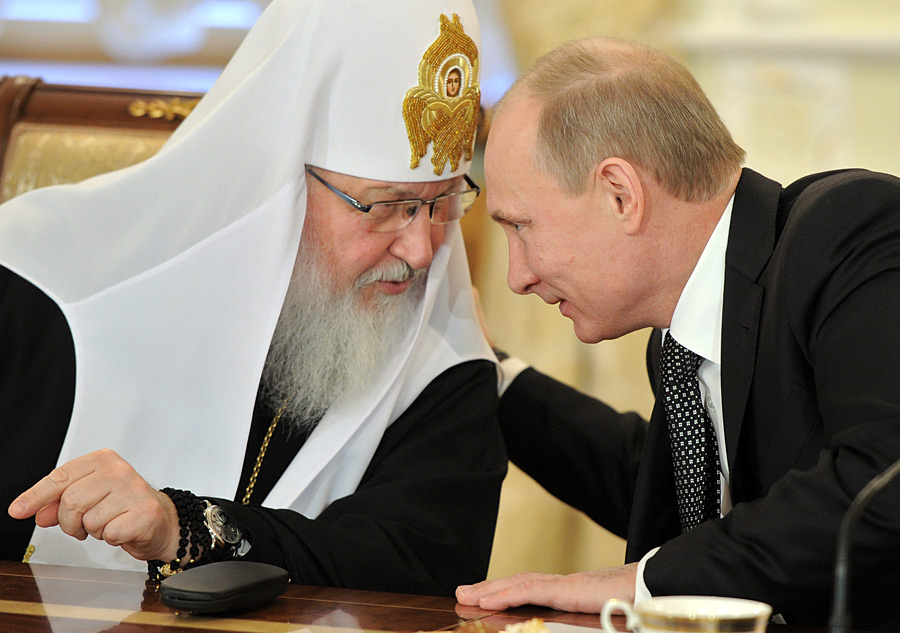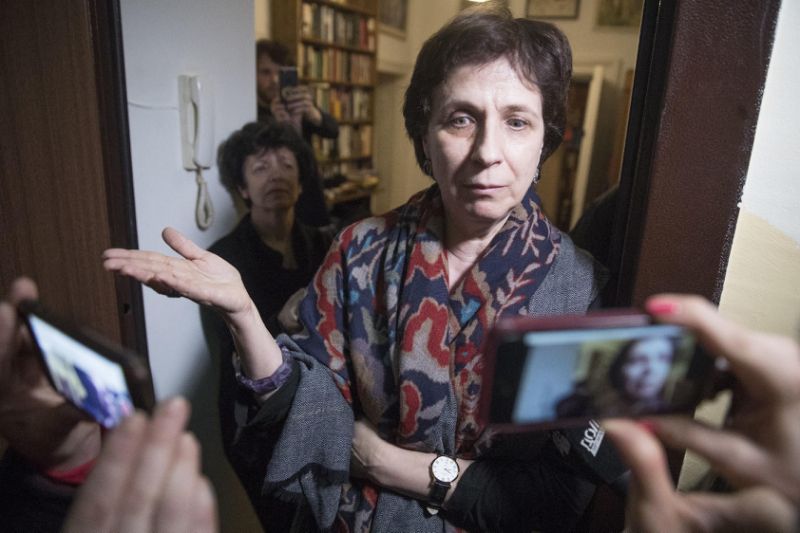After the dissolution of the ruling coalition, new elections await Ukraine – with the backdrop of continuing battle and a critical situation in Donbas
Ukrainian Prime Minister Arseniy Yatseniuk, after the fall of the ruling coalition, declared his resignation, having categorically refused to form a new coalition with the involvement of the communists and the Party of Regions. Verkhovna Rada speaker Oleksandr Turchynov earlier announced the cessation of the ruling coalition “European Choice” after the party factions of UDAR and “Svoboda” withdrew from it. Leaders of the factions Vitali Kovalchuk and Oleh Tiahnybok emphasized that their decision will allow the President of Ukraine Petro Poroshenko to dissolve the Parliament and appoint early elections in the fall, which is what they are aiming for. According to the Constitution of Ukraine, if within a month starting the date the coalition ceases to exist, the Verkhovna Rada fails to form a new one, the President has the right to preemptively end the power of the Parliament. 15 non-faction members also left the coalition “European Choice.”
 One of the main piece of news of the day in Ukraine was also the dissolution of the parliamentary faction of the Communist party of Ukraine (CPU), which is being accused of supporting the separatists in the east of the country. The grounds for dissolving the parliamentary faction of the communists was the norm of the Verkhovna Rada Statute that was re-established earlier, according to which a faction cannot have fewer than 32 members. As back in the beginning of June the numbers of the Communist faction decreased to 23 Parliament members, Verkhovna Rada speaker Oleksandr Turchynov declared its liquidation at the session on the morning of July 24th: “This is a historical event. And I hope that there will never be any communist party factions in the Ukrainian Parliament ever again!”
One of the main piece of news of the day in Ukraine was also the dissolution of the parliamentary faction of the Communist party of Ukraine (CPU), which is being accused of supporting the separatists in the east of the country. The grounds for dissolving the parliamentary faction of the communists was the norm of the Verkhovna Rada Statute that was re-established earlier, according to which a faction cannot have fewer than 32 members. As back in the beginning of June the numbers of the Communist faction decreased to 23 Parliament members, Verkhovna Rada speaker Oleksandr Turchynov declared its liquidation at the session on the morning of July 24th: “This is a historical event. And I hope that there will never be any communist party factions in the Ukrainian Parliament ever again!”
In parallel with the dissolution of the communist Parliament faction, the Kyiv District Court is holding a session regarding the case to ban the CPU. Political expert Oleksandr Paliy thinks that the accusations against the communists of supporting the separatists in Donbas have all the grounds they need:
“A representative of the communists headed the so-called “People’s Republic of Donetsk.” In the Parliament, the communists started leaving the faction several weeks ago. For example, communist Oleksandr Holub who left, said that the leader of the CPU Petro Symonenko had files full of blackmail material on all fellow faction members, he has big financial resources, property in NATO countries, in particular, in Spain. Therefore we are witnessing the process of self-exposition on part of the communists.”
The currently non-faction member of the Verkhovna Rada Oleksandr Holub
says himself that he has a lot of questions for Petro Symonenko:
“We received information that many accusations made against Symonenko by the Ukrainian journalists – regarding his numerous luxury houses near Kyiv, in Volyn oblast and in Spain – are confirmed by a whole number of facts and documents, which were shown to us. As to what happened in the Verkhovna Rada, it is an attempt to deal with those who think differently, without a doubt. The decision to dissolve the communist faction is illegitimate, as the law does not have revertive power. It was made in violation of the norms of the Parliament statute, as it was put up for vote several times.”
Besides the dissolution of the communist faction, the Verkhovna Rada announced the fall of the ruling coalition “European Choice” with the goal of dissolving the Parliament and a swift update of its members. The President’s allies from Vitali Klitschko’s UDAR party faction, as well as right-wing radicals from “Svoboda” left the majority. “Given the current situation, the Parliament that is hiding state criminals, Moscow agents, the people working for the Kremlin, should not be at work,” stated “Svoboda” leader Oleh Tiahnybok.
If the members of the Parliament fail to form a new coalition within a month, the head of state will have the legal right to dissolve the Parliament. According to the chairman of the “Penta” Political Investigations Center Volodymyr Fesenko, the probability of early parliamentary elections is very high:
“However, naturally, part of the Parliament members might make attempts to neutralize the risk of the Parliament’s dissolution, try to create a new coalition, but they will come face-to-face with serious obstacles, including the resistance of Maidan supporters.”
 The coalition “European Choice,” which consisted of party factions of “Batkivshchina,” UDAR, “Svoboda” and MP groups “Economical Development” and “Sovereign European Ukraine,” was created on February 27th of the current year. Theoretically the new majority could be created by Yulia Timoshenko’s “Batkivshchina” party, “Svoboda” and the representative of the former government, the Party of Regions. Volodymyr Fesenko is doubtful that “Batkivshchina” and, what is more, “Svoboda” will resort to such a union:
The coalition “European Choice,” which consisted of party factions of “Batkivshchina,” UDAR, “Svoboda” and MP groups “Economical Development” and “Sovereign European Ukraine,” was created on February 27th of the current year. Theoretically the new majority could be created by Yulia Timoshenko’s “Batkivshchina” party, “Svoboda” and the representative of the former government, the Party of Regions. Volodymyr Fesenko is doubtful that “Batkivshchina” and, what is more, “Svoboda” will resort to such a union:
“Why would they form a coalition with the ‘regionals,’ especially in the current situation, when they are fighting with the communists, with Mykola Levchenko (Party of Regions member). It would be a death sentence for them. Therefore I am skeptical of this. The same way, “Batkivshchina” will not resort to this.”
If the parliamentary elections were to take place next Sunday, the majority of the votes, according to the survey made by “Rating” sociological groups, would be given to Petro Poroshenko’s “Solidarity” party – 17,5%, second place would be given to Oleh Liashko’s Radical party – almost 10%, third place would go to “Batkivshchina” – 8,5% and Vitali Klitschko’s UDAR would only get fourth place with almost 6%. Volodymyr Fesenko
thinks that the new Parliament will obviously have more supporters of the current President than the current one:
“Of course, if the elections take place in the end of October, the situation might change, and change in various ways. For example, should Poroshenko manage to successfully end the special op in the east of Ukraine, should he be sufficiently active in fighting corruption and initiating reforms, then he will have good chances of preserving a high level of support and push his party to take one of the leading roles in the Verkhovna Rada. Therefore the probability of creating a pro-President majority in the new Parliament is quite high.”
To Volodymyr Fesenko’s mind, Russian President Vladimir Putin is not interested in a new Verkhovna Rada, the vast majority of which would be anti-Russian, and will therefore attempt to disrupt the early elections. This is one of the reasons why Kyiv does not exclude the possibility of a full-scale military invasion in Ukraine of the Russian army:
“Putin is fighting for Ukraine, and he will employ various methods in order to preserve his influence. Here the matter is not even the parliamentary elections themselves, but his desire to preserve political instability and influence in our country. As to the Russian invasion in Ukraine, such an option cannot be ignored, but this would constitute a threat of conflict with the West for Putin. However, Putin will continue the policy of destabilization, interference in Ukraine’s affairs,” Volodymyr Fesenko, head of the “Penta” Center for Political Investigation, is convinced.
On July 24th, Advisor to the President of Ukraine, member of the Verkhovna Rada Mykola Tomenko stated that former President Viktor Yanukovych’s people hiding in Russia from Ukrainian justice began acting work to attract the representatives of pro-Ukrainian factions towards an anti-presidential coalition for big money. However, according to Tomenko, they will fail to gather a new majority, and no later than August 25th, the head of state will sign the order to dissolve the Verkhovna Rada and appoint early parliamentary elections on October 26th.
[hr] Source: Radio Svoboda
Translated by Mariya Shcherbinina





